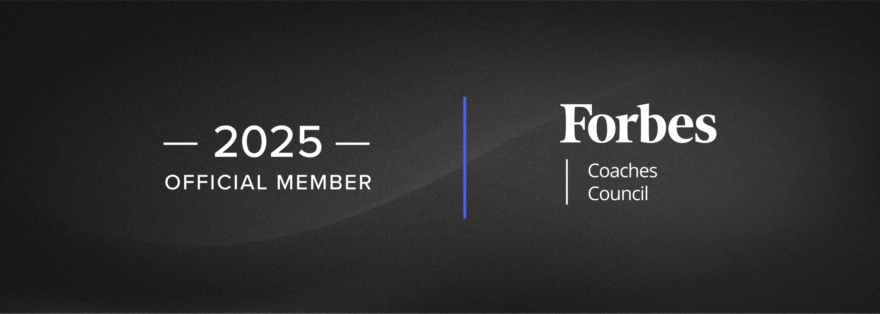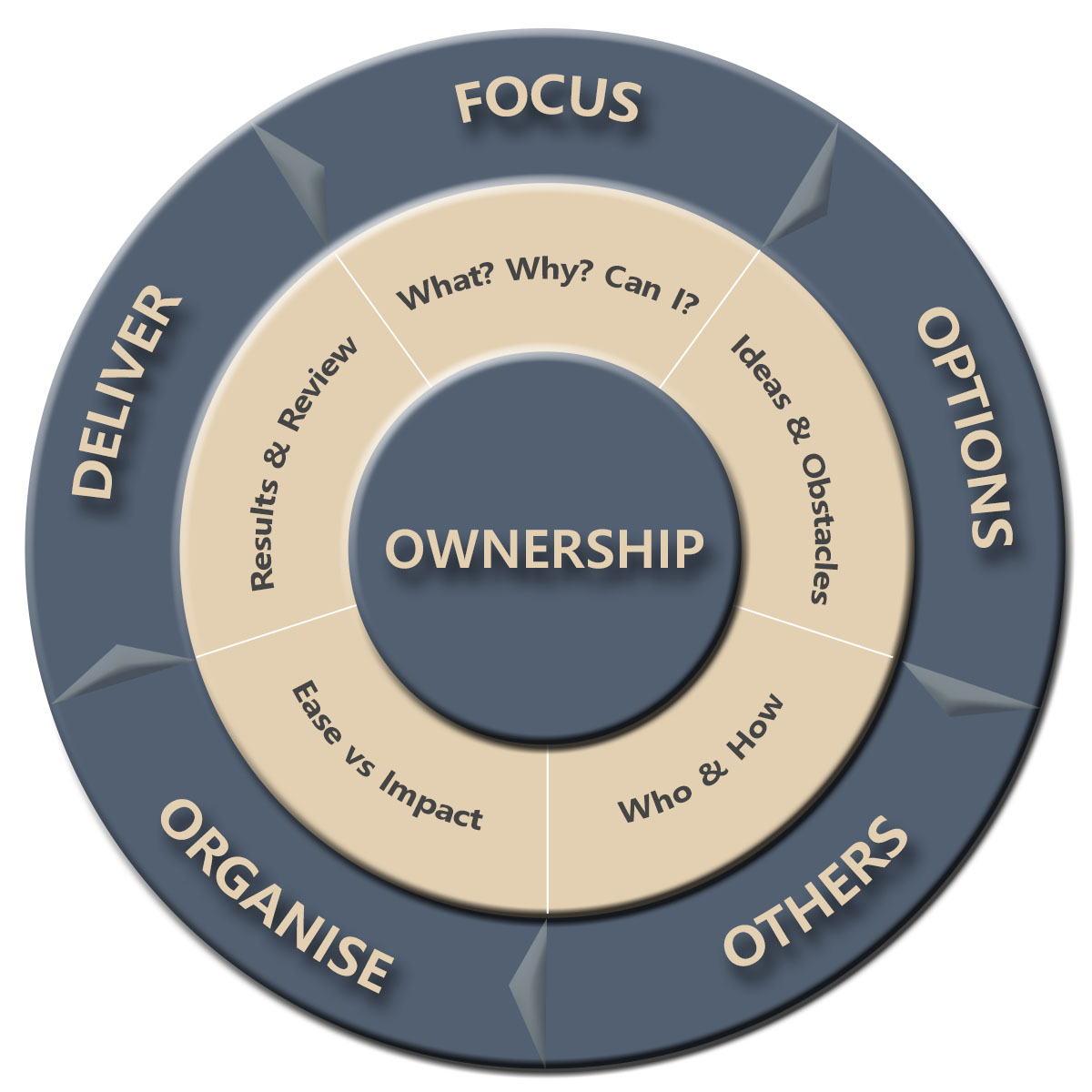
Teams often waste time reinventing the wheel, working on projects with the same old methods and ending up with the same frustrations. Even when they attempt “new” approaches, they often replicate past mistakes, leading to post-rationalised explanations for success or failure. The real issue is that most teams don’t have a shared, consistent framework to guide their work and learning.
What if you could plug into a shared system—an Operating System for success—that keeps everyone aligned, focused, and equipped?
Why an OS?
Operating systems (OS) are everywhere, from phones and laptops to TVs. You might be one of the 3.9 billion Android users or the 1.56 billion iPhone users worldwide; if so, there will be an OS working away to ensure your devices work, manage resources to avoid conflicts and provide a familiar, intuitive interface so we don’t have to relearn how to use our phones every day.
Why not give your teams the same reliable, familiar “operating system” for problem-solving and goal achievement?
Imagine a common language underpinned by universal tools that accelerate results. Much like you can open Microsoft Word and instantly know how to bold text or format your page, a “Team OS” would let you tackle goals, drive projects, and solve problems without having to start from scratch every time.
The Benefits of a Team OS
A proper Team OS isn’t about code, but about what it does for the people using it; let’s borrow a few concepts from tech OSes and apply them to teams:
Stability
Your devices handle daily wear and tear without failing. A shared OS of mental models and tools creates consistency in a team context, so work is done on a solid, predictable platform – no surprises or random steps.
User Experience
Familiarity matters. Like tapping an icon on your phone without thinking, a Team OS lets you instantly apply proven approaches and tools. No time wasted reinventing processes or dealing with confusion about “how we work here.”
Resource Optimisation
A good OS seamlessly manages system resources. For teams, this means reducing overlap, prioritising critical tasks, and freeing people to focus on high-impact work – no more second-guessing who does what and when.
Interoperability
Tech OSes allow new hardware (like printers) to work right away. Likewise, a Team OS that uses universal mental models and tools makes integrating new people, processes, or projects easy without costly retraining.
Introducing FoooDo
We developed a mental model for thinking, planning, reviewing, and executing everything from personal goals to large-scale projects. Our clients affectionately call FoooDo. Since its launch in 2016, FoooDo has helped teams in countless settings, from delivering multi-million-pound ROI on company-wide initiatives to identifying failing projects and stopping the financial bleeding.
Think of FoooDo as an OS:
- It includes built-in psychological insights to mitigate biases and limiting beliefs.
- It provides a common language and a shared approach.
- It allows you to ‘plug in’ your own context, just like adding apps on your phone.
A Real-World Success Snapshot
Recently, a global manufacturing client used the FoooDo process to rescue a high-profile initiative on the brink of failure. By pausing to evaluate their assumptions (the “Others” step) and systematically exploring potential solutions (the “Options” step), they pivoted to a more viable plan, ensuring success and saving over £1 million in potential losses.
The FoooDo Framework in Six Steps
Below are the six core elements of FoooDo, each with its own psychological underpinnings:
Focus (The What)
- Define precisely what you want to achieve.
- Use goal-defining tools—like SMART or SMT AR (as we prefer)—to set clear targets.
- Clarify your Purpose (The Why) and check your Belief (Can I?). Purpose keeps you motivated when things get tough. In terms of belief, too little and you give up; too much and complacency may set in.
Options (Unlock Possibilities)
- Resist the urge to dive straight into action.
- Ask creative questions and brainstorm solutions without judgment to tackle bias (such as authority bias or groupthink).
- Tools in this phase ensure every voice is heard and the best ideas rise to the top.
Others (Getting the Right Support)
- Goals often fail because we assume others won’t or can’t help.
- Clarify what you need from each stakeholder and present compelling reasons for them to get involved.
- A well-structured ask can transform “too busy” into “happy to pitch in.”
Organise (Plan and Prioritise)
- Evaluate your ideas critically. Which ones make sense? Which are low effort/high impact?
- Build out a timeline, address potential obstacles, and decide who owns each task.
- Mitigate personal or group bias by considering multiple angles before settling on a course of action.
Delivery (Review and Adapt)
- Every plan needs a formal review process to capture lessons and make mid-course corrections.
- Ask: Is the goal still relevant? Do we need to stop, pivot, or continue?
- Testing your confidence level ensures you’re not pushing ahead with a failing approach.
Ownership (Accountability and Mindset)
- Accept accountability rather than blaming circumstances or other people.
- This step is about adopting a growth mindset where failures become learning opportunities, not excuses.
- Use simple benchmarks to determine whether your current reality is due to genuine challenges or self-imposed limitations.
Why FoooDo Works
FoooDo doesn’t just organise tasks—it addresses the human side of goal execution. Embedding psychology into each phase systematically counters cognitive biases that derail teams. And because it provides a consistent, team-wide “OS,” everyone can plug in their expertise without friction or confusion.

Summary: The Power of a Team OS
In today’s volatile, uncertain, complex, and ambiguous (VUCA) environment, teams are easily side-tracked by shifting priorities and internal politics. A Team OS—like FoooDo—offers:
- A stable platform where work gets done effectively.
- A familiar approach that reduces cognitive load and confusion.
- Built-in adaptability, so you pivot quickly without starting from scratch.
- Bias mitigation keeps everyone aligned on the real goal rather than personal agendas.
It frees people up to focus on what truly matters—delivering results without rework, blame games, or second-guessing.
Ready for Your Team OS?
What’s your Team OS, and how is it working for you? If you suspect there could be a better way for you and your team to plan, execute, and learn, we’re here to help. Give us a call or drop us a line, and let’s explore how FoooDo can unlock your team’s full potential.
You can watch our webinar, where we unpack the Team OS concept in more detail and offer real client examples.
This article first appeared on Forbes.com on 21st February 2025

Ricky has been a regular contributor to the Forbes Councils since 2023, where he shares his perspectives on all things leadership, change, culture and productivity, all with Thinking Focus’ unique perspective on metacognition, or as we prefer to say, thinking about thinking.




